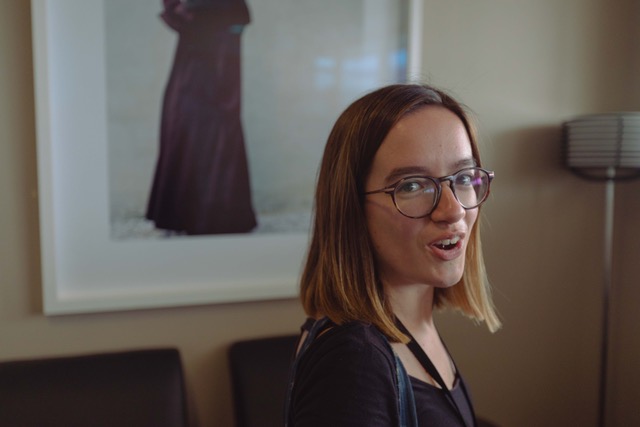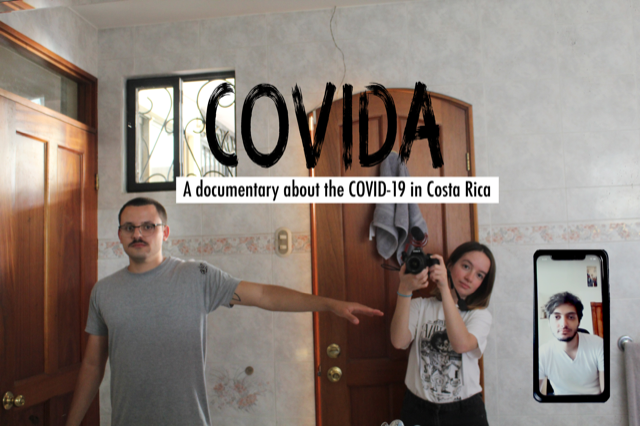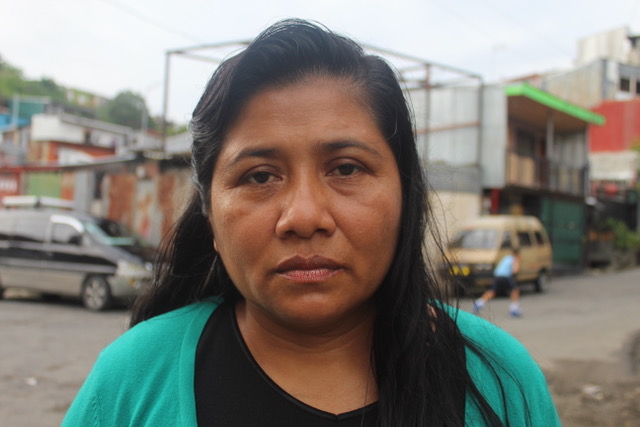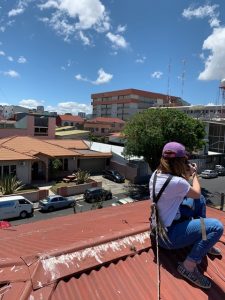
By Stacy Forster
When Elizabeth Lang Oreamuno was starting out as a reporter in Costa Rica, a renowned journalist at a competition dismissed her by saying the kind of journalism she wanted to do didn’t exist there.
But years later, she has shown it does exist — in the School of Journalism and Mass Communication at the University of Wisconsin–Madison. During her time in the school’s professional master’s program, “having the time of my life,” Lang Oreamuno, a self-described “troublemaker,” has produced groundbreaking projects on street art and COVID-19 that received top awards from the Wisconsin Broadcasters Association and the Milwaukee Press Club. She also spent time as a fellow with the school’s Center for Journalism Ethics exploring the ethics of crime coverage in her home country.
“In the four years I was [working] in Costa Rica, I never got any of the support I’ve gotten here, or the attention and resources,” she says. “I learned to do a lot with very few resources.”
Lang Oreamuno brought an outsider’s perspective with her when she arrived in Madison, and one of the first things she noticed was a lack of street art around the city. In Costa Rica, street art is used to make political statements, and when she started exploring it in Madison, she was surprised to find out it was largely controlled by the city government. She turned that observation into Mad Street Art, a multimedia project about how the street art that does exist in Madison reflects social inequality and disparities.
“I wanted to produce an experience for the audience,” Lang Oreamuno says of the project.

When the pandemic intervened in the middle of her second semester in the program, Lang Oreamuno went back to Costa Rica for spring break and ended up staying for four months. She scrapped the projects she had been working on for her journalism classes and decided instead to document the effects of COVID-19 in Costa Rica. She produced an interactive experience called COVIDA — a play on the name of the virus combined with the Costa Rican phrase “pura vida,” which means pure life.
The website she created features a story exploring the persecution of Nicaraguans in Costa Rica amid the pandemic, as well as a podcast and documentary about how people there were living in quarantine. The documentary led her to an interview with a high-ranking health official with the Costa Rican government, and it gained national attention after a television network picked it up and interviewed her live on air about her reporting.

“I figured I can throw the stories out the window,” Lang Oreamuno says of deciding to change course partway through the semester. “I’m in Costa Rica, and I won’t have the opportunity to do this in a pandemic again, and I just went with it.”
Distinguished faculty associate Pat Hastings, who taught the courses where Lang Oreamuno created Mad Street Art and COVIDA, said Lang Oreamuno grew with having the “elbow room” to explore and experiment with her creativity and made the most of opportunities in the program.
“She’d have an inkling of an idea, and she’d go off and come back, and a month later, there would be a fully formed, multilevel project,” Hastings says. “It wasn’t just one piece of the puzzle that was good, it was the level of work at multiple levels…She really took a project and would run with it.”
Lang Oreamuno says the reporting she did in Costa Rica showed her how coursework at UW-Madison was intertwined to give her a full academic and professional development experience. Students in the program are required to take classes outside the School of Journalism and Mass Communication, and Lang Oreamuno’s focus on arts and culture reporting prompted her to take a course in spring 2020 on art history in Latin and South America. The instructor talked about how art and culture can’t be separated from what’s happening in a social, economic and political context, something Lang Oreamuno observed when she found herself back home that semester.

“Going to Costa Rica to do this unexpected story also helped me understand where we were at at a political and economic and social level,” she says. “It opened my mind, and I didn’t know I was going to apply it so quickly.”
Since then, COVIDA has gone on to receive multiple awards, including first place in the Wisconsin Broadcasters Association Student Awards for Excellence and a silver award in the Milwaukee Press Club’s Collegiate Excellence in Journalism Awards.
Lang Oreamuno continues to explore life in Madison through reporting for Tone Madison, including a story and podcast about a collaboration between two UW-Madison arts organizations — the printmaking studio Tandem Press and the jazz program. Her reporting work now doesn’t feel that different from her coursework, she says, because students in the master’s program spend most of their time going out into the city to find interesting stories and interview people.
“Just dive in and go for it, and have lots of fun,” Lang Oreamuno says to those looking to join the program. “It doesn’t feel like you’re in school because it’s very practical.”